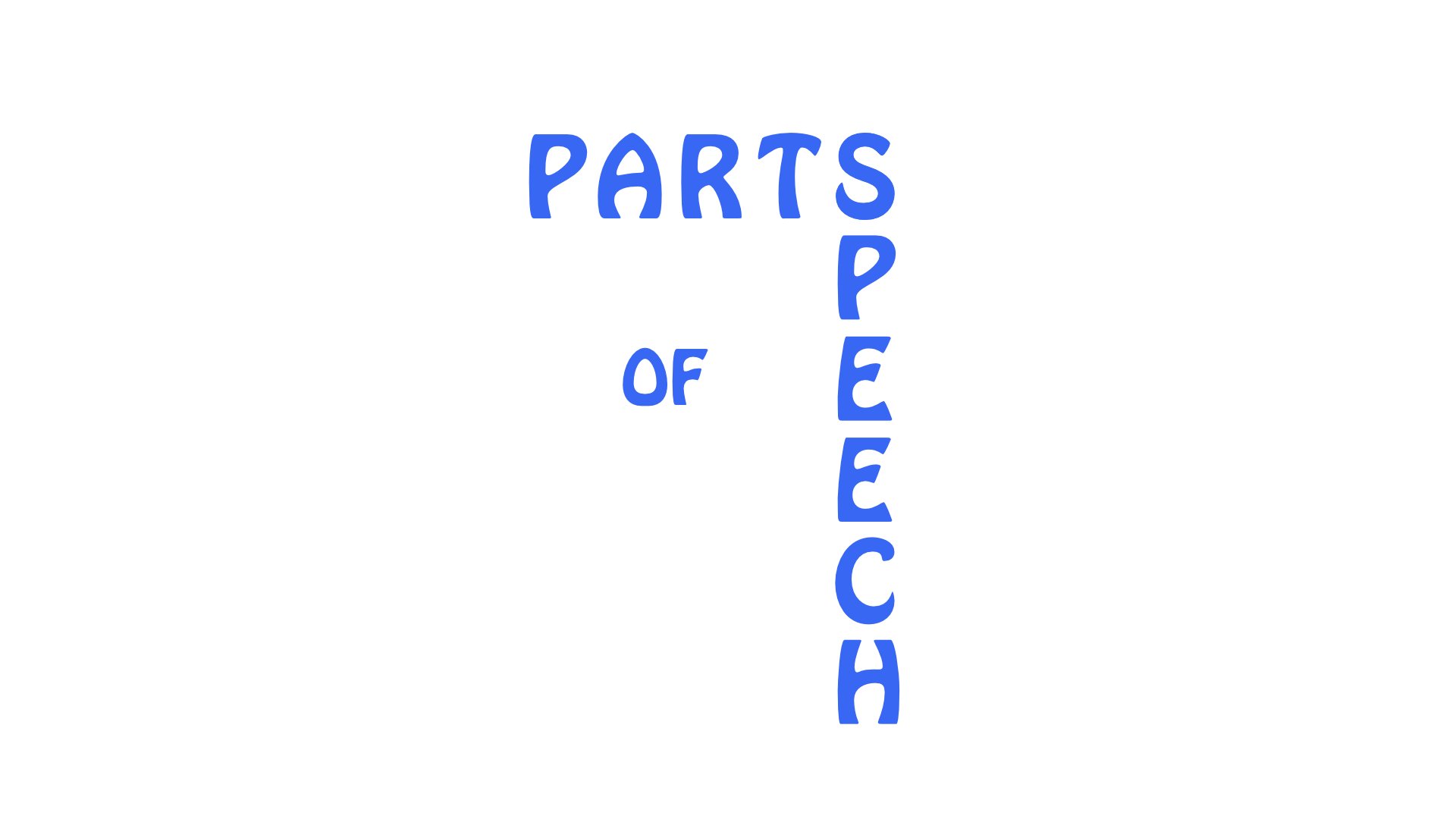Parts of Speech
There are nine parts of speech in English. As they are the fundamental building blocks of every sentence we utter, understanding their function and use facilitates correct expression and mastery of communication.
Here is a very brief outline.
1 Nouns
Nouns are the words used to name people, places, animals, things, ideas etc.
There are four types:
Common
These have a physical existence – e.g. dog, book, girl, grass.
They are also known as concrete nouns.
Proper
These are the personal names of particular persons, places etc.
They always begin with a capital letter – e.g. Caroline, Barbados, New York, Genius College, Mount Vesuvius.
Abstract
These are the names of ideas, feelings, states etc.
They do not have a physical existence (i.e. We can’t touch them.) – e.g. happiness, courage, anger, loneliness, sympathy, fear, misery.
Collective
These are the terms for groups of things – e.g. swarm, gaggle, horde etc.
2 Adjectives
Adjectives describe or qualify nouns.
They give more information about nouns so that we understand precisely which noun is meant. In effect, they limit our selection of nouns. If you ask me to buy a container, I could buy any container at all, but if you ask for a square one, the choice is restricted considerably. If you ask for a large, square, red container, the choice is even smaller – and I know exactly what you mean.
There are six types of adjective:
Demonstrative: this, that, these, those, each, every, either, neither
Distributive: each, every, either,neither
Interrogative: what? which? whose?
Possessive*: my, your, his, her, its, our, their
Qualitative: happy, old, tall, angry, red, large, square, wet
Quantitative: some, any, many, much, few, several
3 Verbs
Verbs are doing words, the words used to indicate:
actions: walk, play, eat, laugh
states: seem, appear, be
changes: become, grow
The infinitive is the basic form of the verb – to be, to go, to believe. In its simplest form, it is not limited by person, number or time and it is the form from which finite (complete or finished) verbs are formed.
A finite verb may consist of either one word or several words.
Participles are incomplete verbs.
There are two basic forms:
the present participle – the part of the verb ending in -ing – writing, eating
the past participle – the part of the verb used with have/has/had – broken, seen, eaten
Auxiliary verbs may be used to help participles form complete verbs – have broken, has seen, was walking, did help.
4 Adverbs
Adverbs modify or add information about verbs, adjectives or other adverbs.
They often tell how, when, or where something happens.
Henry sang so well.
She came yesterday.
He walks very quickly.
I went later.
They stayed here.
She always visits us.
5 Pronouns
Pronouns stand in the place of or for nouns. There are six types:
Demonstrative: this, that, these, those
Look at this!
What are those?
Indefinite: each, either, neither, some, any, all, something etc.
He’s hiding something.
You asked me which car I like; I like neither!
Interrogative: Who? Which? What?
Who has read the book?
Personal: I, me, you, he, him, she, her, it, we, us, they, them
Possessive*: mine, yours, his, hers, its, ours, theirs
Reciprocal: each other, one another
Reflexive: myself, yourself, himself, herself, itself, ourselves, yourselves, themselves
Relative: which, who, whom, whose, that
I met the man who sold the house.
6 Prepositions
Prepositions introduce phrases, often about time, manner or place.
in the morning against us by Shakespeare
on the table near the city behind the sofa
after lunch with care under the table
7 Conjunctions
Conjunctions are joining words. There are two types:
Co-ordinating conjunctions – used to form Compound Sentences – and, but, or.
I went shopping but I bought nothing.
Subordinating conjunctions – used to form Complex Sentences– because, when, as, although, since, that etc.
He wore a coat because he was cold.
8 Articles
There are two:
Definite Article = the
There is just one person, animal or thing – I can see the moon.
Indefinite Article = a/an
This refers to one of several or many – I can see a star.
9 Interjections
Interjections are the single words we use to express surprise, disappointment, pain, anger, fear etc.
Oh! Goodness! Help! Ouch!
* Beware!
Do not confuse Possessive Adjectives and Possessive Pronouns:
my book = possessive adjective
This book is mine. = possessive pronoun
Mine is a pronoun standing in place of my book, whereas my is an adjective telling us which book.

